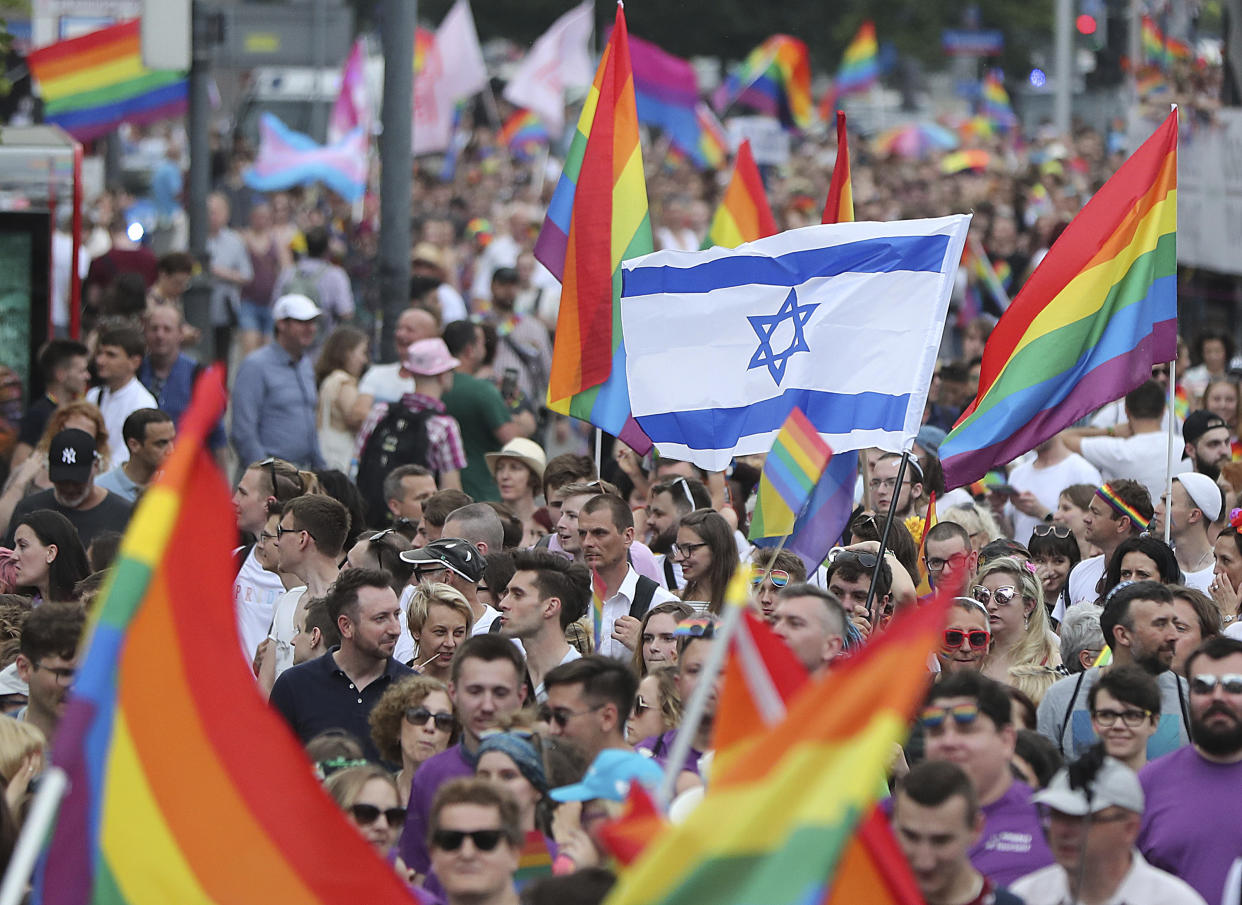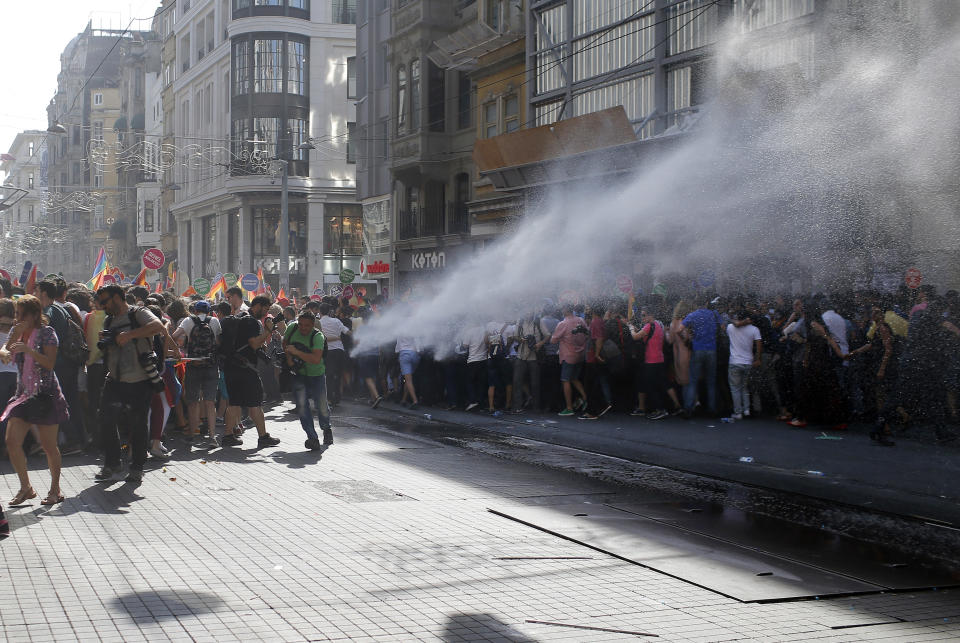The best and worst countries to be LGBT in Europe

As the world marks the 50th anniversary of Gay Pride, many will celebrate the positive changes since over the last half century.
But there is still more to be done, campaigners argue - especially in some countries.
Azerbaijan, Turkey and Armenia have the most restrictive LGBT+ equality laws and policies in Europe, while Malta, Belgium and Luxembourg are at the other end of the scale and ranked top.
Rainbow Europe, a measuring tool created by campaign group ILGA-Europe, looks at the laws and policies in 49 countries, ranking them according to 69 individual criteria.
Those criteria are split into six categories: equality and non-discrimination; family; hate crime and hate speech; legal gender recognition and bodily integrity; civil society space; and asylum.
Countries are then ranked on a percentage scale where 0% indicates gross human rights violations and 100% represents the greatest degree of equality.

In the latest rankings, Azerbaijan scored just 3%, while Turkey and Armenia were awarded 5% and 7% respectively, making them the three worst places to be LGBT+ in Europe.
In Azerbaijan, same-sex marriage is outlawed and it is not illegal to discriminate on the basis of gender or sexual orientation.
In 2017, human rights groups criticised reports of mass arrests as part of an alleged cracking on LGBT+ people and in April this year there were reports that more than a dozen LGBTI people had been arrested and ‘forced to undergo medical examination to test their HIV/STI status.’
In Turkey, homosexuality is legal but the civil rights laws do not include sexual orientation or gender identity and there is no legal recognition for same-sex couples.
There are also reports that laws relating to ‘offences against public morality’ have been used against the LGBT+ community.
In November 2017, authorities in Ankara banned all LGBT cultural events indefinitely, under the mantle of security concerns.
That ban was later extended to include all LGBTI-focused events generally, not just those organised by LGBTI associations and all public LGBTI-related discussions are banned in Ankara province.

In Armenia, homosexuality has been legal since 2003 but it is still socially unacceptable, with many LGBT Armenians reportedly keeping their sexual orientation or gender identity secret for fear of being outcast by friends and families or in the workplace.
According to a 2012 study, more than half (55%) of respondents in Armenia said they would curtail a relationship with a friend or relative if they came out as gay, while 70% said they find LGBT people "strange.”
At the other end of the scale, Malta came top with 90% followed by Belgium with 73% and Luxembourg with 70%.
Britain was in joint-seventh place with Portugal at 66%.

According to Evelyne Paradis, executive director of ILGA-Europe, both Luxembourg and fourth-place Finland improved their rankings by addressing gaps in transgender and intersex rights.
She told the Thomson Reuters Foundation: "Those countries that continue to do really well and go up are those that... clicked quite some time ago that the agenda was more than marriage equality".
But she said the 2019 rankings suggested that countries are moving backwards when it comes to LGBT+ laws and policies.
Examples cited by ILGA-Europe included: Poland no longer providing access to medically assisted reproduction for single women, and Bulgaria removing all its administrative and legal procedures for changing name or gender marker in the official documents for trans people.
Bulgaria, Hungary and Turkey are countries that slid back on the ranking because of their governments’ failure to uphold fundamental civil and political rights such as freedom of assembly, freedom of association and protection of human rights, it said.
“If ever there was a time to put high political priority on LGBTI equality, it is now,” said Paradis.
“In the current increasingly polarised social and political climate, laws and policies are often the last lines of defence for LGBTI communities. That’s why we need national and European decision-makers to redouble efforts to secure equality in law and in practice for LGBTI people.”

 Yahoo News
Yahoo News 

